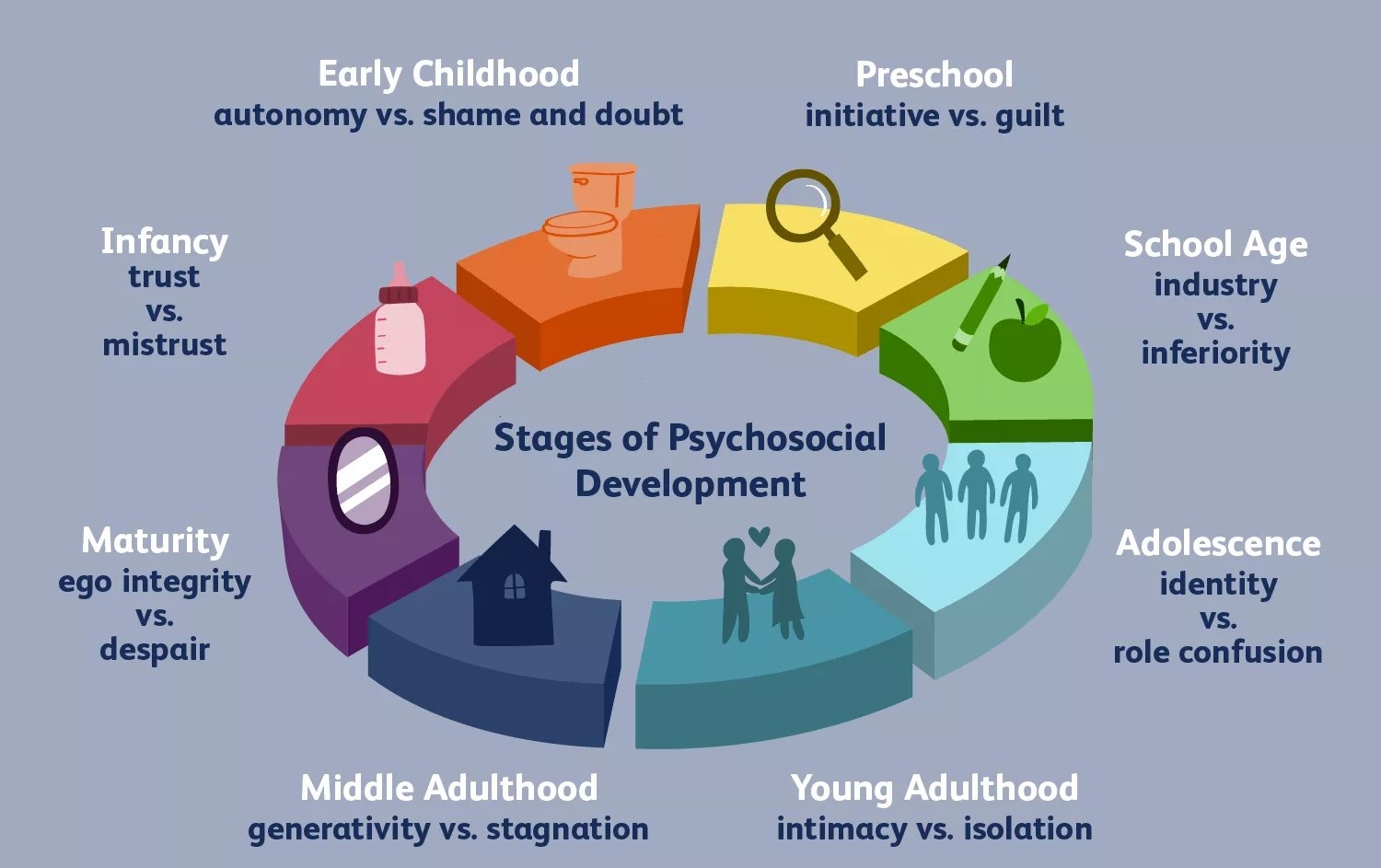
To thoroughly study the development of the human mind, it is imperative to understand the link between aging and consciousness. As a person ages, their mind and consciousness go through a series of different stages with each stage having its own set of characteristics. For this scenario, the primary basis of psychological aging is based on the values held at a certain point in time, rather than the beliefs. Depending on the geographical location, belief systems can significantly vary. However, by gauging the development of the mind based on values, it opens the door for cross-comparison between individuals, communities, and organizations.
The Evolutionary Phases Of Psychological Development

Psychological development can be mapped based on the ego-soul evolutionary dynamic. In this case, this dynamic seeks to explain the gradual shift from the “ego” or self to the “soul” or purposeful development.
Ego development
This stage of growth involves the development of a human into an independent, functioning adult. It lasts from the ages of infancy to being a young adult and prioritizes filling in any holes one might have in their cultural and parental upbringing. The fulfillment of cultural needs is a vector for great satisfaction and happiness, and the lack of which causes feelings of fear and uncertainty.
Ego-Soul Alignment
To reach this phase, you must first master living a life based on values and your deepest beliefs, and following your true path in life by using your natural skills and abilities. Unlike the development of the Ego, which is primarily fueled by external factors, this alignment is only attained by an innate desire for full expression. It must be kept in mind that the alignment will base itself on the level of satisfaction you have on your Ego. The key trait here is that the alignment would cause you to leave the aspects of your professional lives that are incompatible with the expression you are looking for. This also holds true for your personal life, with the desire for expression often resulting in friction.
Soul Emergence
The final stages of development involve connecting with the “spiritual” aspects of one’s self. This phase is completely devoid of the uncertainty associated with the Ego and is instead focused on applying the skills and experience gained for the betterment of humanity. It is a time of great empathy, and it motivates you to help and assist those weaker, younger or disadvantaged around you.
The Stages Of Psychological Development
Surviving
Starting in infancy, the survival stage involves complete reliance on parents for all physical needs. Although the core functions of the body are present, the lack of external control leads to the infant needing guidance from its parents. Due to the vulnerability, the infant looks for security and survival from its parents, with these feelings becoming crucial requirements later on.
Conforming
When the child has learned to survive in a secure environment, it tries to understand its environment and how to fit in. The environment needs of a friendly, cooperative nature, so the child feels comfortable and taken care of. This is also a time of experimentation, with the child understanding safety risks in the form of pain. In this age, a child needs to feel loved, taken care of and safe as the foundation for the next age.
Differentiating
Unlike in previous stages, where the environment was mostly confined to one’s family, this stage focuses on external factors and social relationships. The child steps out of its comfort zone to be respected and gain recognition from the greater world around them. At this level, you need to receive a sense of worthiness from your circles, as it is a crucial facet of crafting your identity. It must be noted that fitting into different circles can create resistance between your social and familial life. It may even result in a conflict in values, with the typical result being the creation of an ‘alternate’ personality outside your home. The lubricant, in this case, is simply trust, and guidance from your family, with feeling, accepted playing a crucial role.
Individuating
At this stage, you will work on finding your true-self free of any external influences. As an individual, your independence in profession, finances and relationships jump starts your individuating phase. This shift may be rough as it needs you to go from a dependent to an independent lifestyle. There may also be the risk of external factors such as political issues becoming an additional cause of stress.
Self-Actualizing
The question of your own identity lays the foundation for this stage. Professional and academic achievements that you thought were all you need slowly start to fade away. This is the time for deep introspection on what you really want while weighing your options with your responsibilities. You work on finding your true self and what makes you unique, and use it as a vehicle for happiness and fulfilment.
Integrating
Once you have come to terms with your actual desire, the next stage is finding a way to integrate it into the world. Your talents need output and environment which would cooperate and help further your dreams. A writer may find his calling to a group of nursing essay help, and use their intelligence collectively for everyone’s benefit.
Serving
The final stage of development would lead you to live a life of selfless service. You try to leave a legacy behind and set an example, all while giving back to the world you grew up in. This includes being charitable and developing a sense of humility towards your efforts for society. At this level, the only things you care about are the inherent characteristics of things as a way to gain complete fulfillment and contentment.

